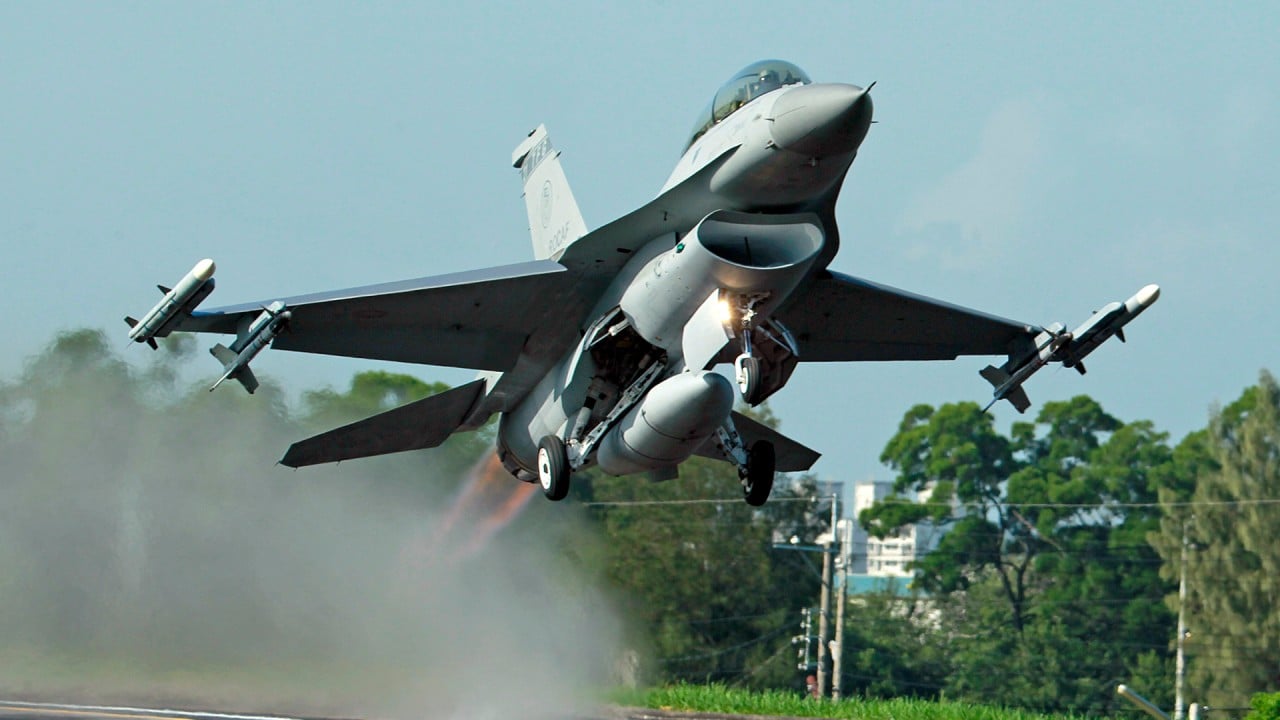
US presidential election: Taiwan on alert for post-poll impact on ties with mainland China
- Island’s foreign minister says Taipei is preparing for all outcomes from the US electoral race
- No sign of deployments on the mainland signalling threat of conflict, he says
Speaking before a legislature meeting on Monday, Wu said Taiwan was keeping a close eye on the race and preparing for a possible transition from the administration of the Republican incumbent Donald Trump to his challenger Joe Biden.
“Should there be a transfer of power ... there would be a turnover period and possibly a period when the person elected has yet to fully assume his post,” he said.
“In this period, all relevant departments, including the national security unit, the defence ministry and the coastguard administration will make the best preparations for anything that could possibly happen.”
If there were no transfer of power, Taiwan would continue to maintain “very good” relations with the Trump administration and promote US-Taiwan relations.
Why Taiwan may be a key factor in China’s military modernisation plan
Wu repeated the message in the legislature, saying Taipei would continue to maintain balanced relationships with both the Republican and the Democratic parties and the island would continue to deepen the US-Taiwan partnership.
Asked whether the PLA would use the US election as an opportunity to attack the island – a possibility raised by former US naval officer Seth Cropsey – Wu said he did not think so.
“China’s military intimidation has truly existed and that is what we have perceived, but ... the [US] election will be over in a day or two and up to now, there has been no difference in China’s activities,” he said.
“If it wanted to mobilise its forces, it would have had to make some movements and deployments by now.”
Wu said the island would maintain close communication with the US to ensure that it had “adequate information and time to actively and fully respond” should any cross-strait conflict erupt.
“Regardless of who is elected, the US is expected to maintain its military deployment in the region, or even increase that to avoid China from launching military adventure externally,” he said.
Cropsey, a former deputy undersecretary of the US Navy and now a senior fellow at the Hudson Institute, said in September that “there may never be a better moment for China to strike than the week of November 3”.
His assessment was based on the premise that the election would result in a succession crisis and the PLA could mount an attack on Taiwan while there was a gap in power.

00:42
China threatens retaliation over US plans to supply Taiwan with arms
Collin Koh, a research fellow from the S Rajaratnam School of International Studies at Singapore’s Nanyang Technological University, said Taiwan was concerned that a Biden administration might lead to a cooling in ties, especially after the recent flurry of arms sales and high-level exchanges between the two sides.
“It’s against this backdrop that Taiwan is more likely concerned about what may happen after, instead of during, the elections – in particular, the election outcome and what it would mean for Taiwan,” Koh said.
“One scenario would be dispute over the election results, which could lead to domestic upheavals in the US and thereby pose a potential distraction [in the US] away from a possible Chinese military aggression of any form, including low-level use of force.”

02:28
Washington’s US$1.8 billion arms sale to Taiwan is first weapons deal of its kind in over 40 years
But in Taipei, dentist William Wang was optimistic that there would not be conflict.
“There have been countless reports about the escalating cross-strait tension and that the US’ firm support for Taiwan would trigger an angry attack from China, but they are just exaggerated,” Wang said.
According to an October 20 opinion poll conducted by the National Policy Foundation, a pro-Kuomintang party think tank, 60 per cent of Taiwanese people do not believe that a war will erupt between Taiwan and the mainland despite tensions between them.
Also on Monday, Taiwan’s defence ministry said the PLA sent eight warplanes to Taiwan’s southwest air defence identification zones in five sorties, prompting the air force to scramble fighter jets to disperse them. Since October 1, the PLA has sent 37 warplanes on missions near Taiwan.
Additional reporting by Kristin Huang

